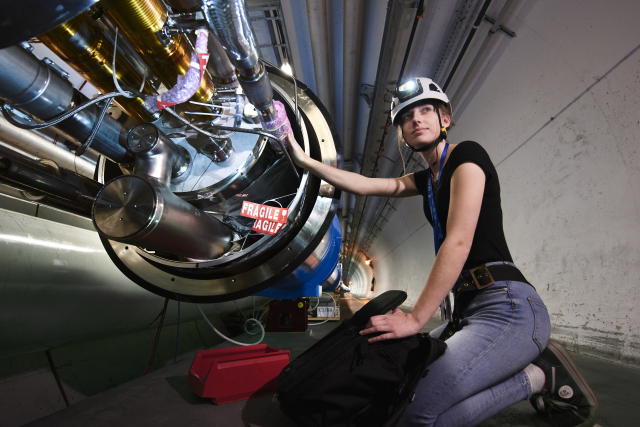In November 2020, CERN announced the approval for funding of several projects under the Horizon 2020 funding programme for scientific and technological cooperation, among which I.FAST for “Innovation Fostering in Accelerator Science and Technology”. At a time when particle accelerators face critical challenges related to the size and performance of future facilities for basic science, the increasing demands for photon and neutron science, and the growing applications in medicine and industry, I.FAST aims to enhance innovation in the particle accelerator community, facilitating the development, in connection with industry, of breakthrough technologies common to multiple accelerator platforms.
At their core, these different particle accelerators share the same basic principles and technology, currently at a high level of maturity and success. But to maintain this success accelerators need innovation going in two main directions. We need to develop more sustainable technologies, capable of reaching ultimate performance at an acceptable environmental impact, and at the same time we have to favour the transfer of technologies developed for the next generation of colliders towards accelerators used for applied science and for societal applications.
For that, I.FAST aims at bringing selected key technologies to an advanced design and prototyping phase, in close connection with European industry. Out of the 48 I.FAST participants, as many as 16 are industrial companies. The I.FAST technologies have been selected after a competitive evaluation. They are grouped into key thematic areas, namely: development of new accelerator concepts, improvement of high brightness light sources, prototyping of innovative technologies for superconducting magnets and cavities, advanced technologies and materials, approaches to improve sustainability and energy efficiency, new societal applications, and joint exploitation of the accelerator technology infrastructure.
"Our immediate goal is to develop ideas and devices that we hope to see one day at the core of the next generation of particle accelerators – filing at least a couple of patents on the way!” explains Maurizio Vretenar, project coordinator of I.FAST. “Our long term goal is definitely more ambitious. We hope to merge the competences and experience of accelerator laboratories and universities with those of innovative European companies, to create an innovation ecosystem favourable to new ideas that might provide accelerator science with much-needed tools to face the crucial challenges ahead."
|
One way CERN cultivates close collaborations with both academia and industry is through its participation in projects co-funded by the European Commission (EC) under programmes such as Horizon 2020. I.FAST is part of a group of seven projects with CERN participation approved in the Research Infrastructure calls of the Horizon 2020 programme in late 2020, five of which are coordinated by CERN. The five projects range from future accelerators (I.FAST) and detectors, to radiation testing facilities, medical isotopes, and the next generation of detection and imaging technologies. Over the years, CERN has participated in 93 Horizon 2020 projects, out of which 32 were or currently are coordinated by CERN, including ARIES, a project dedicated to the research, development and innovation of European particle accelerators and their related infrastructure and technology. |

